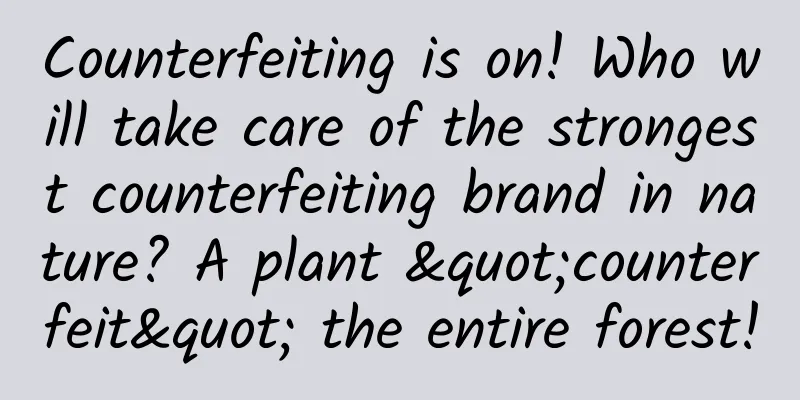He failed the teacher qualification examination many times, but he created a miracle by rewriting the high school biology textbook

|
He was born in poverty and lived in poverty for half his life. At the age of 21, he put on monk's clothes and cut off worldly ties; He aspired to become a glorious people's teacher, but he failed the teacher qualification examination repeatedly and ended up being a guest teacher for 14 years. He discovered the secret of heredity; He was ignored during his lifetime and died alone, but he became a hit after being forgotten for decades... Speaking of the protagonist of today's story, almost everyone who has studied high school biology knows him. He is Mr. Mendel, who asked high school students to count peas every day. 1 **.** A man in a humble alley does not change his ambition: I have loved learning since I was young. Mendel's eventual path of studying the genetic laws of plants was closely related to his childhood experiences. On July 20, 1822, Mendel was born in a small village called Heindorf in the Silesia region of Austria. His ancestors were farmers for generations, and he followed his father to work in the fields since he was a child. He gradually developed a strong interest in the rich and colorful plants. Curious, Mendel was eager to learn and wanted to know more about the world. His primary school teacher, Thomas Makita, was very optimistic about him. Under the advice of his teacher, Mendel was sent to a higher-level middle school in Leipnik. He lived up to everyone's expectations and became the child of other people's families. He received "excellent" and "outstanding" evaluations in all subjects and graduated from Leibnik with the best grades in the class. After that, he went to senior high school in Trubel near Poland, where he continued to excel. The Trubel Museum, with its rich collection of scientific literature, opened the door to a new world for Mendel, greatly satisfying his thirst for knowledge. However, compared with the joy that learning brought to Mendel, his poor family background also added a lot of difficulties to Mendel's school life. His study conditions were very difficult. He could only live in a very remote rented house and survive on the bread sent by his father from his home 20 miles away. When he could not get help, he had to go to school hungry. In 1838, Mendel's parents could not even afford his tuition; to make matters worse, his father was hit in the chest by a fallen tree and lost his ability to work. He could no longer support his studies. Mendel, who was only 16 years old, had to support himself, going to school while working as a part-time tutor. He managed to make ends meet with his meager income, and finally finished high school and came to Olmütz to study philosophy. This time, in order to raise tuition, Mendel went through a lot of trouble to find a tutor position, but due to overwork, hunger and malnutrition, he fell ill again and had to go home to recover before continuing his studies. Faced with the hardships of life, in order to no longer struggle for survival, Mendel had made up his mind to become a priest and live a stable life. As he wrote in a letter to a friend: "I entered the monastery not because of religious beliefs, but because of the pressure of life." He asked for help from his teacher, Professor Michael Franz, who wrote a letter of recommendation to the Brno Monastery. In 1843, Mendel entered the monastery and was named Gregor. ****At that time, he probably would not have thought that the Brno Monastery would be the place where he would devote his life. ****He would live here; he would conduct plant experiments here and discover the genetic secrets of plants; he would also become the abbot of the monastery until he died here. 2 **.** Three failed teacher qualification exams: The bitter story of a guest teacher Mendel was lucky. When he first entered the monastery, the abbot was Knapp, who loved plants. Knapp planted various trees in the monastery garden, forming a small botanical garden, which preserved specimens of almost all rare plants in Moravia. In addition, Knapp was also committed to promoting agricultural development. He once presided over a meeting of the German Agricultural Society in Brno and made the following speech: "The method of forming hybrids and improving varieties always takes a long time. This is because people do not understand the genetic laws of organisms. Therefore, we must devote ourselves to the study of clarifying the genetic laws in the future." At that time, Mendel was still three years away from entering the monastery. Knapp did not expect that it was the young man named Mendel who realized his dream. All this is inseparable from Knapp's help to Mendel. Seeing that Mendel was obsessed with the study of natural sciences, Knapp sent him to the botanical garden to be Krasher's experimental assistant, to study together methods of improving varieties and evolutionary principles related to plant genetics. Later, with Knapp's recommendation, Mendel entered Qinham High School as a substitute teacher. The approachable and amiable Mendel quickly won the love of students, but the school required him to pass the corresponding teacher qualification examination before he could officially teach. Because he had not received any systematic university course education, Mendel's answers in the exam did not rely on traditional knowledge terms, causing the examiner to give him a very low score. After learning the reason why Mendel failed the exam, Knapp helped him enter the star-studded University of Vienna to systematically study natural science courses. He was deeply influenced by scientists such as Unger, Doppler, Knell, and Finzl, from whom he learned a lot of animal and botanical knowledge, techniques, and scientific thinking methods. After three years of studying abroad, Mendel returned to the examination room with great success, ready to avenge his previous defeat, but the results were still unsatisfactory. Failure to obtain a teaching certificate directly led to Mendel being a "guest teacher" for 14 years. However, gold will always shine. It was such a person who repeatedly failed to obtain a teaching certificate who later created a miracle of rewriting our biology textbooks . 3 **.** **Planting beans at the foot of Nanshan Mountain, yellow and green three to one: ** pea hybridization experiment Before Mendel, biologists' knowledge and understanding of heredity were not much better than that of ordinary people. At that time, people believed in the theory of "fusion inheritance", which is that the blood of the parents is responsible for the characteristics, and the characteristics of the offspring are a fusion or mixture of the parents, and the characteristics of the offspring are a compromise of the characteristics of the parents. For example, if a red flower is hybridized with a white flower, the resulting flower will be pink. However, this statement cannot withstand scientific scrutiny. Mendel believed that if the offspring simply combined the characteristics of their parents, the characteristics of all organisms would tend to be the same, which was obviously inconsistent with the colorful nature. In order to verify his hypothesis about the laws of inheritance, Mendel began his experiments in 1854. After searching for more than 20 kinds of organisms, Mendel finally determined peas as the most suitable experimental object through comparison, and then selected 22 pea varieties and 7 pairs of the most easily distinguishable traits. From 1856, Mendel began his career as both a matchmaker and a father. In eight years, he planted a total of 29,000 pea plants, not only taking good care of them, but also hybridizing different types of peas and recording the differences in the characteristics of pea seeds, pods, leaves, stems and flowers during their growth. Unlike previous biologists, Mendel creatively introduced mathematical models into biological experimental analysis. This originality enabled him to see deep-seated laws that other biologists could not see. He found that when a pea plant with yellow seeds was crossed with a pea plant with green seeds, their offspring were always yellow; however, in the next generation, the ratio of green to yellow seeds was 1:3. He also observed the characteristics of pea seeds, the location of pea flowers, and the differences in pod shape and color, and through hybridization, the above properties also showed similar patterns. The Law of Separation and the Law of Independent Assortment From this, Mendel proposed the concepts of "dominant factors" and "recessive factors", and obtained two important laws of genetics: one is the law of segregation, which determines that pairs of genetic factors of the same trait are separated from each other and inherited independently to offspring; the other is the law of free assortment, which determines that genetic factors of different genetic traits can be freely combined. They reveal the basic laws of the mysteries of biological genetics. 4 **.** “Hidden Scientific Giants”: Overlooked discovery After repeatedly conducting backcrossing experiments to test his conclusions, Mendel published two papers on the genetic laws of plants. Mendel copied 40 copies of his paper and sent them to some famous biologists at the time. However, most of them fell into oblivion. Only the botanist Negri wrote back to him and maintained a long-term correspondence. Later, Mendel spoke about his theory in public, published his discovery in newspapers, and even recorded it in the Encyclopedia Britannica, but none of them attracted people's attention. Despite this, in his later years, Mendel still confidently said to his good friend Professor Niesser: " Look, my time has come. " However, it was not until 1900, 34 years after Mendel published his paper, that Mendel's prediction came true. His research results were rediscovered by three botanists. This event was thus called "Mendel's Mystery" by the academic community. Bust of Mendel It was inevitable that Mendel, a genius ahead of his time, went from being ignored to being deified. In 1965, a British evolution expert said in a speech celebrating the 100th anniversary of the publication of Mendel's paper that "this is the only example of a science being born entirely in one person's mind." Mendel's conclusion broke the theory of genetic "mixing" and also removed the biggest theoretical obstacle for the establishment and progress of Darwin's "theory of evolution". Because according to the "theory of mixing", the characteristics of organisms will become more and more single due to mixing, and there will not be many traits to choose from, so "survival of the fittest" does not exist. The combination of genetics and evolution has given rise to molecular biology and recombinant DNA technology, which has completely changed the life sciences. As scientists have cracked the genetic code, people have begun to move towards controlling genetic mechanisms, preventing and treating genetic diseases, and synthesizing life, which will benefit mankind even more. All this is closely linked to the name of the solitary monk of the Monastery of St. Thomas who devoted his life to science. |
<<: This disease can be fatal in severe cases, so be careful if you have children at home!
>>: The highest level of WHO alert! To deal with monkeypox, we need to clarify these issues
Recommend
How much does it cost to be an agent of a steel mini program in Tongchuan?
What is the price of Tongchuan Steel Mini Program...
Indie Developers’ Anthem: Craftsmanship
The following is from Xhacker's Base: I am a ...
2.5 yuan online celebrity dessert has become the "top trend" recently, doctors urgently remind these people to eat less
Recently, long queues have formed in snack shops ...
Sharing of research methods on plain text reading experience on mobile terminals
[[163483]] According to a survey, in 2014, the bo...
Is the Northeast blizzard related to the "snow typhoon"? Experts: This statement is unscientific!
Meteorological monitoring data shows Affected by ...
The Information: ChatGPT’s paid users exceed 20 million, revenue surges 30%
Recently, according to The Information, ChatGPT, ...
How to make funny videos on Tik Tok? Complete Tips for Making Tik Tok Videos
This article mainly introduces how to make funny ...
Set five world records! See the super "wisdom" behind the Shenzhen-Zhongshan Bridge
Editor's Note Millions of IPs create science ...
How do fish avoid danger? What are some ways to defend against enemies?
Produced by: Science Popularization China Author:...
New gesture operation appears in the Android 10.0 beta: cancel the back button and rely on Home capsule to complete
Since the iPhone X removed the physical Home butt...
How to operate during the product stable period
A reader asked how he could make a breakthrough a...
The new energy vehicle market is facing “wolves in front and tigers behind”. What are the latest countermeasures for domestic automakers?
Since 2018, my country's new energy vehicle m...
iOS 15.2 has "fixed" the problem that prevented third-party screen replacement, but there are still warning pop-ups and functional restrictions
Previously, Apple was heavily criticized by iPhon...
up to date! An inventory of the characteristics of channels such as Tik Tok, Tencent, and Weibo!
“How do I optimize my account?” “How to solve the...
Electric Technology Car News: As a once leading model but now in decline, Tiguan L can still crush its rivals with its performance and space
Tiguan, once the leading model of joint venture S...









